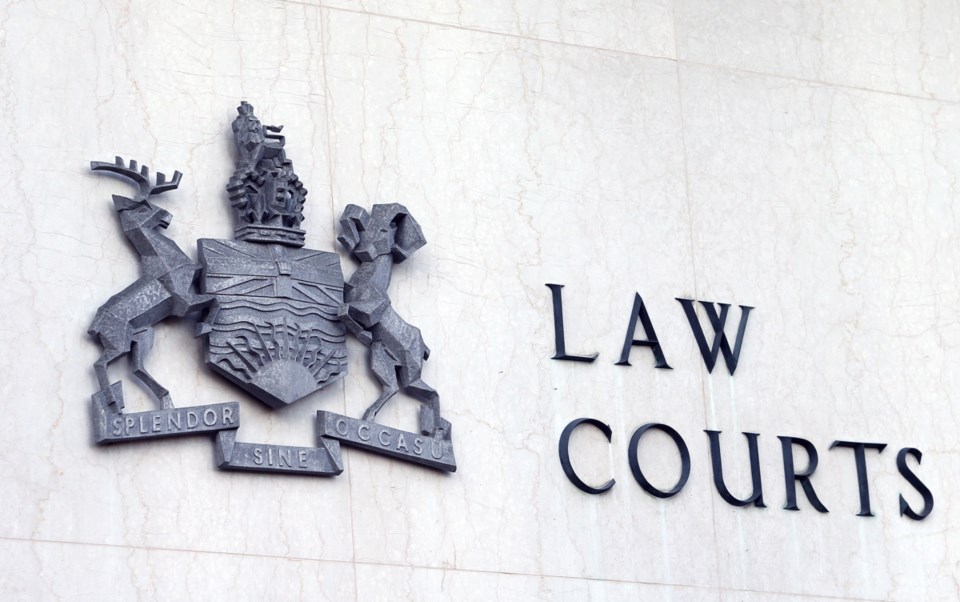A Royal Jubilee psychiatric nurse, an emergency room physician and the health authority were negligent in the assessment and treatment of a mentally ill patient in 2007 but cannot be blamed for his life-altering suicide attempt, a B.C. Supreme Court justice has ruled.
Joseph Briante and his mother, Carol Briante, filed a malpractice suit alleging that a nurse and doctor who saw him Oct. 29, 2007, failed in their psychiatric assessment and treatment of him.
Less than a week after he was discharged from the Royal Jubilee Hospital emergency room without seeing a psychiatrist, Briante slashed and stabbed his neck and arm several times, resulting in severe blood loss and cognitive impairment.
In his decision, B.C. Supreme Court Justice Keith Bracken found that psychiatric nurse Tami Hooff and emergency room Dr. Helen Mary Ross breached the standard of care expected at a specialized psychiatric emergency service. He also found that Island Health, as their employer, was vicariously liable. He apportioned 80 per cent of the fault to Hooff and 20 per cent to Ross.
“In holding itself out as a specialized service, [psychiatric emergency services] must meet an elevated standard of care,” Bracken said.
Joseph Briante’s family brought the then 32-year-old former lawyer to the hospital in 2007 because he was paranoid and delusional — he feared being sacrificed on Halloween, for example. The family specifically sought out the expertise of Royal Jubilee’s psychiatric emergency services.
But the psychiatric nurse and emergency room doctor failed to collect sufficient patient history, the court heard. Briante’s family was never interviewed, and family members keen to provide information felt dismissed by the nurse.
The doctor testified that had she known the family’s concerns, she would have likely called for a psychiatric consultation.
The on-call psychiatrist was never called. Joseph Briante was discharged.
On Nov. 4, Briante slashed and stabbed his neck and arm several times. He experienced an almost total loss of blood supply to the brain and as a result will likely never live completely independently of assistance, the court heard.
“He has severe cognitive impairment,” court documents say. “It is clear that he will never fully recover his mental ability, nor will he ever be able to pursue a career.”
However, Bracken stopped short of finding the defendants liable for the loss incurred by Briante.
As a general rule, he said, a plaintiff must show, as a matter of fact, that he would not have suffered the loss “but for” the negligent act or acts of the defendant.
But there is no certainty that had Briante been seen by a psychiatrist on Oct. 29, 2007, he would have either been admitted to hospital or, had he seen a psychiatrist and been discharged, that the suicide attempt could have been prevented, Bracken said.
“The best that can be said is that the referral might have made a difference.”
The Briante family is disappointed that the court did not accept that even with proper treatment and a consultation with a psychiatrist, Joseph’s condition would likely have been alleviated — at least to the point of preventing self-harm, said lawyer Robert W. Cameron.
However, they agreed that there was a failure to meet the requisite standard of care and negligence in respect to Briante’s assessment and treatment.
“The evidence confirms that Joseph was suffering from a first-break psychosis of unknown origin and duration,” Cameron said.
While the family decides whether to appeal, they are hopeful the judgment may lead to better assistance of psychiatric patients in the future, Cameron said.
The health authority, meanwhile, said it was sobered by the judge’s insights, sad about the tragic outcome for the family, and is reviewing the decision with an open mind to making improvements.
Kelly Reid, Island Health’s director of mental health and addiction services, said in retrospect that it’s clear that psychiatric services should have been made available to the family.
“They absolutely should have seen a psychiatrist.”



